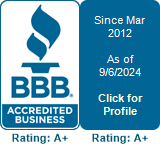Business taxes are often not Income Taxes because a small business doesn't usually pay Income Taxes. That is because many are either S Corporations or LLC's. Thus, the entity could never be responsible for income taxes since the taxes are passed through to the owners. However, the tax typically imposed on S Corporations & LLC's is the Business Employment tax, for employee withholding of income taxes & FICA.
The owners have a fiduciary duty to give the money to the IRS. When they fail, the IRS can impose the tax upon them personally.
So, the start of the whole process begins when the business files a Form 941 or a Form 944. The IRS will also require a Form 940 but this doesn't carry Trust Fund Recovery implications. Also, the IRS will review the filed Forms W-2 for the business to make sure they match the filed Forms 941 or 944.
To begin with, if any of these forms are miscalculated or late the IRS will impose penalties. These penalties are difficult to fight and must be paid to save the business. So, a carefully crafted Penalty Abatement Request is often required to reduce or eliminate these penalties.
Form 941:
If you review the Form 941 you will notice that there are 3 taxes being withheld from each employee's wages:
- Federal Income Tax Withheld
- Social Security tax withheld
- Medicare tax withheld
For the Social Security tax and Medicare tax, 1/2 is paid by the company and 1/2 is paid by the employee. The business is supposed to withhold from the employee's wages to pay the Federal Income Tax Withholding and 1/2 of the Social Security and Medicare taxes. The company and it's owners have a fiduciary duty to pay this withheld money to the IRS. If they fail, they are personally liable and cannot use the corporate immunity to shield them. Plus, this tax is not dischargeable in Bankruptcy. The tax is called the Trust Fund Recovery Penalty. It's not technically a tax, but a penalty.
IRS Audit:
The IRS will audit the business using the forms and procedures outlined in "Business Taxes" on the main TaxHelp website. They could uncover discrepancies in the wage amounts, in the calculations or on the forms. But, they most often are looking to impose liability on the owners (& others) for the Trust Fund Recovery Liability Penalty. They could also coordinate their efforts with the State Department of Revenue or the State Department of Labor.
These governments are also looking to see if wage earners were mislabeled as independent contractors. They will want to see all the Forms 1099MISC issued by the business, plus all the supporting documentation proving the status of the worker.
If the business hasn't paid these taxes, the IRS will initiate the procedures outlined in "Business Taxes" on the main TaxHelp Website. In every step of the process there are advantages and pitfalls to be aware. Many times, if you are diligent, the IRS may not assess the Trust Fund Recovery Penalty.
So, please review all the materials provided and consult with our offices PRIOR to contacting the IRS!
J. David Hopkins, JD LLM






